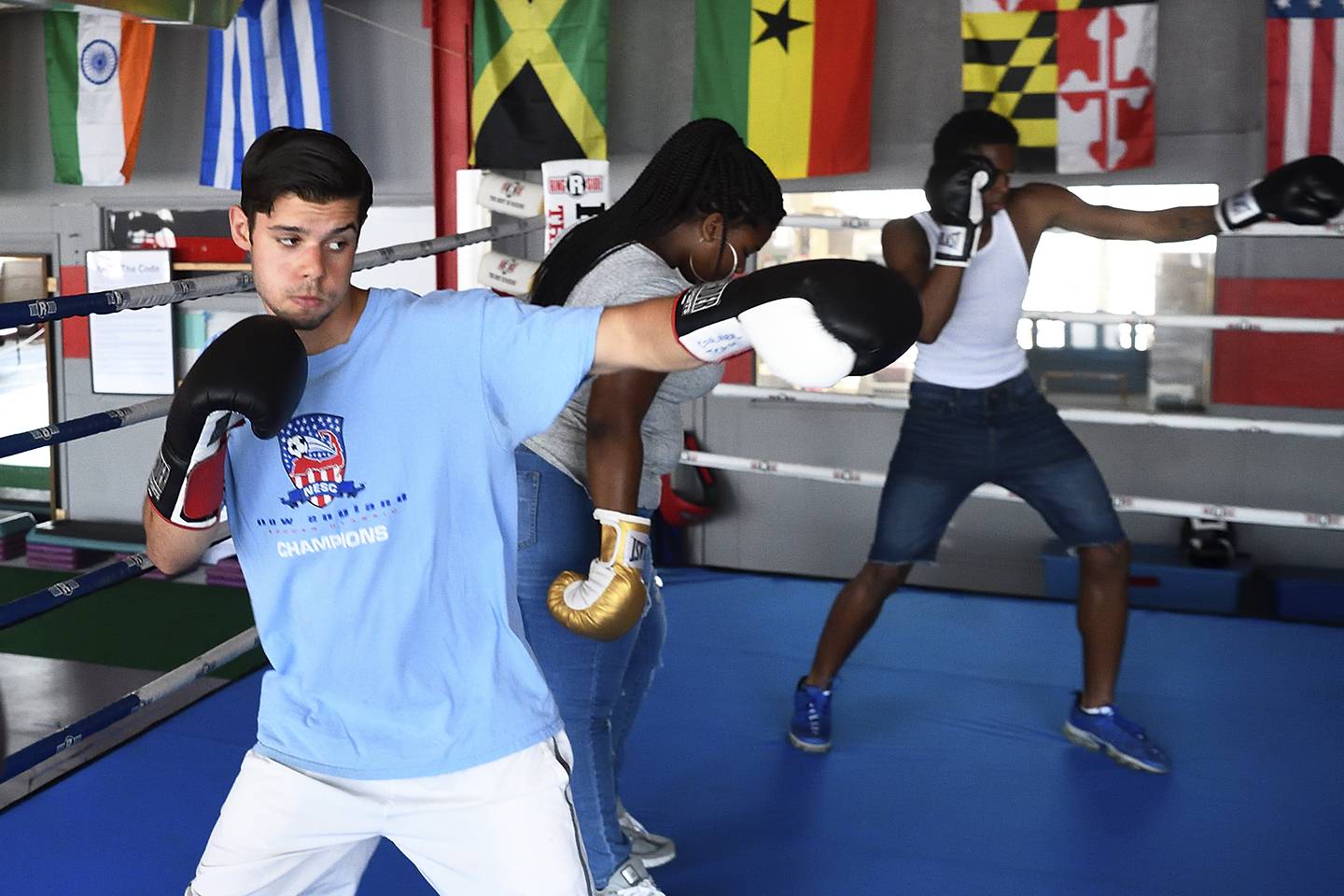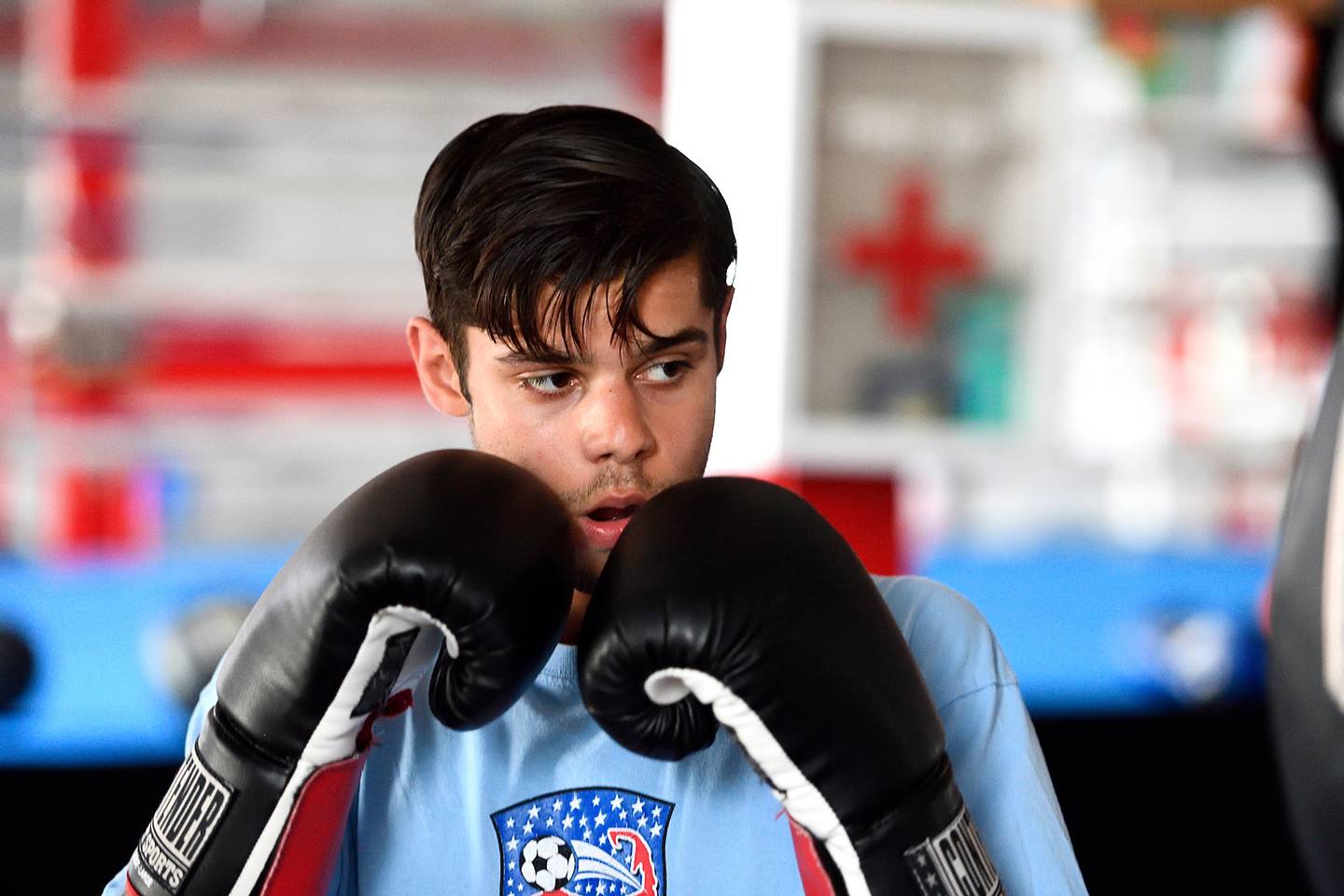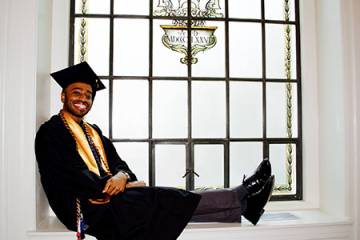Sports have always been a part of Jack Simone's life—from early childhood team experience to a series of coaching roles he's held since his sophomore year of high school. So when he was offered a summer internship experience at a Baltimore boxing club, he was surprised but prepared.
Simone, a biophysics major at Johns Hopkins University, applied to the university's Community Impact Internships Program because he wanted to engage more deeply with Baltimore and believed the program would allow him to support the community while immersing himself in it.
"I was very aware of how little I knew and how little I was connected to Baltimore," says Simone, a rising junior who grew up in suburban Massachusetts. "It definitely made me uncomfortable that I was in my little bubble and not doing anything about it."
CIIP pairs Hopkins undergrads with nonprofit organizations and government agencies in Baltimore for paid, eight-week summer internships, helping participants gain real-world experience while also providing needed help to city organizations. The program placed 49 students this year at nonprofits and agencies including Baltimore Youth Arts, the Chase Brexton LGBT Health Resource Center, YouthWorks, the Office of the State's Attorney, the Maryland Transportation Administration, and Baltimore City Public Schools.

Image caption: Jack Simone, a rising junior at Johns Hopkins, spent the summer interning at Corner Team, Inc., a nonprofit boxing gym in Baltimore, where he helped with grant writing and program development, answered the phone and greeted visitors, and served as site supervisor for five interns from the city's YouthWorks program.
Image credit: Will Kirk / Johns Hopkins University
New on CIIP's roster of site placements this year was Corner Team Inc., a nonprofit boxing gym located on East 25th Street, in the city's East Baltimore Midway neighborhood. Founded by professional boxer and former Ghanaian national boxing champion Michael Gbenga, Corner Team uses boxing and fitness to "engage youth, seniors, and people with disabilities in a safe and supportive environment."
Boxing wasn't what Simone expected, but the seasoned athlete quickly embraced the challenge of learning something new.
"I really enjoy picking up on new things," he says. "With a sport that you do all the time, you get deep into it, and it gets hard to notice improvement. But in the first month of something, it's night and day how much you learn."
Simone also had a lot to learn on the nonprofit management side of his assignment, which he's done by serving in a number of roles at the gym. He's helped with grant writing and program development, and he also takes care of many of the day-to-day tasks, such as answering the phone and greeting visitors. Gbenga and his wife, Sara Artes—who serves as board president—both have full-time jobs and have welcomed Simone's help filling in the gaps at the gym.
"Jack has the skill set that I don't have," Gbenga says. "There's a lot of stuff that we can't do immediately, and Jack can do it, like paperwork and programs that need to be documented. He loves what he's doing and that is very, very fulfilling for me."
Corner Team is also a site for YouthWorks, the city-run summer jobs program that offers Baltimore youth ages 14-21 five-week employment with nonprofit, government, and private-sector sponsors. Simone serves as site supervisor for the five interns assigned to Corner Team; they are piloting the programming Simone is developing for Corner Team's future after-school program.

Image caption: Simone is one of 49 Johns Hopkins undergraduates participating this summer in the Community Impact Internships Program, which pairs students with Baltimore nonprofits and government agencies for eight-week paid internships.
Image credit: Will Kirk / Johns Hopkins University
Projects include building and stocking boxes for "little libraries" in the neighborhood; cleanup in the alley alongside the gym to create an outdoor workout space and raised-bed garden; and a data analytics project that evaluates different boxing styles. Simone also offers the YouthWorkers some coaching before Gbenga arrives to lead them—as well as Simone—in an hour of fitness.
"My background in sports allowed me to connect with all the people who fight here immediately and really deeply," he says. "There's something about throwing yourself at something day in and day out that creates a bond."
Along the way, Simone took in what he saw and heard around him—including how he was received—and began to recognize some hard and uncomfortable truths about race and class. Simone, who is white, says he "came in with a head full of steam" hoping to help the YouthWorkers take the lead in planning a neighborhood event for National Night Out, an annual campaign that promotes police-community partnerships and neighborhood camaraderie. But he quickly realized the YouthWorkers were reluctant to engage with police.
"A lot of that really hit home," he says. "I realized I needed to stop being so brutish, to form relationships with the kids, before digging into this stuff."
He eventually invited the president of the local neighborhood association to speak with the YouthWorkers about their role in the event, and in the process learned the value of leaning on other members of the community, he says.
"It's been very thought-provoking. ... I'm learning to be part of a community of people who are very dissimilar from myself, with different backgrounds," he says. "[In earlier volunteer experiences,] it was easy to show up and start talking and not think about how I was conveying information. I'm learning to think about how much space my voice is taking up, and become as critical about how I'm saying things as what I'm saying."
Posted in Student Life, Community









